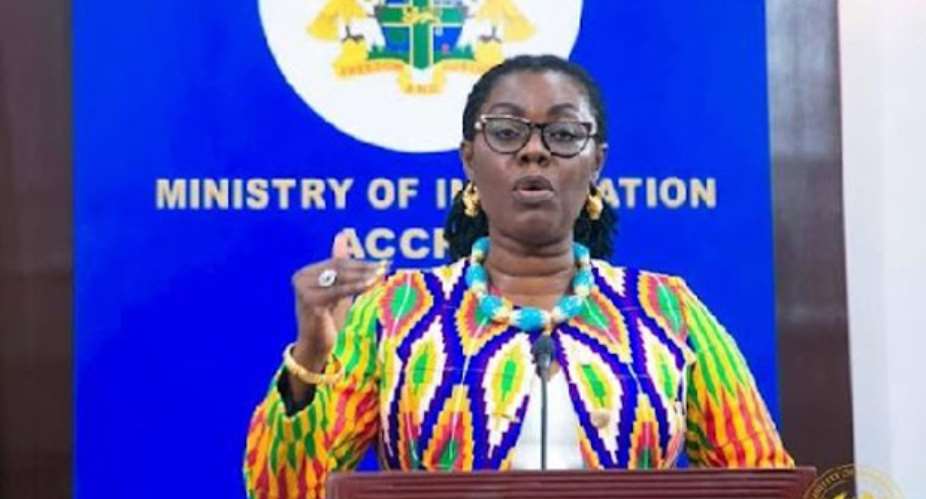Ghana's internet quality internet speed, stability, and growth has been ranked 102nd in the world and is said to be 29% worse than the global average.
A study by a cybersecurity company, Surfshark, on global digital wellbeing finds that Ghana has the slowest mobile internet in Africa, placing 88th in the world ranking out of 117 countries, and only making it into the top 90 in the final index.
Surfshark evaluates countries based on five fundamental digital wellbeing pillars: internet quality, e-government, e-infrastructure, internet affordability, and e-security.
Digital Life Pillars
On five fundamental digital life pillars, the report said Ghana ranked 109th globally), which meant that the country's citizens are paying high cost for the slowest internet.
The best position achieved by the country is 72nd for e-security, while Ghana's e-government services placed 82nd and e-infrastructure and internet quality ranked 99th and 102nd, respectively.
The report stated that compared to Nigeria, Ghana’s mobile internet is 48% slower, while broadband is three times faster.
“Since last year, mobile internet speed in Ghana has decreased by 1.5% (0.2 Mbps), and fixed broadband speed has grown by 4.3% (2.2 Mbps). In comparison, Singapore’s residents enjoyed mobile speeds up to 104 Mbps/s and fixed to as much as 261 Mbps/s – that’s the fastest internet in the world this year,” Surfshark noted.
Affordability Issue
According to the report, Ghana’s internet affordability ranked 109th in the world, pointing out that residents can buy 1GB of mobile internet in Ghana for as cheap as 8 minutes 44 seconds of work per month, 42% less than in Nigeria.
However, compared to Israel, which has the most affordable mobile internet on the planet (5s per 1GB), Ghanaians work 107 times more, the report added.
It said its affordability decreased since the previous year, making people work 3 minutes 19 seconds more to afford the same mobile internet service.
Fixed Broadband
The report indicated that fixed broadband costs Ghanaians around 18 hours 23 minutes of their precious working time each month.
“To afford it, Ghanaians have to work 57 times more than Israeli citizens, for whom the most affordable package costs only 19 minutes of work monthly. Since last year, broadband internet has become more affordable in Ghana, making people work 2 hours 19 minutes less to afford fixed broadband internet service,” the report noted.
Digital Divide
Globally, the report said broadband is getting less affordable each year, adding that “looking at countries included in last year’s index, people have to work six minutes more to afford broadband internet in 2022. In some countries, such as Ivory Coast and Uganda, people work an average of two weeks to earn the cheapest fixed broadband internet package.”
“The same trend was observed last year. With the current inflation, the pressure on low-income households that need the internet has become even heavier. Surfshark’s study also found that countries with the poorest internet connection have to work for it the longest,” it said.
Best and Worst Countries
Overall, 7 out of 10 highest-scoring countries are in Europe, which has been the case for the past three years. Israel ranks 1st in DQL 2022, pushing Denmark to the second place after its two-year lead.
“Germany ranks 3rd, and France and Sweden round up the top five of the 117 evaluated nations. Congo DR, Yemen, Ethiopia, Mozambique, Cameroon are the bottom five countries,” the report mentioned.
Methodology
The 2022 DQL research examined more than 7.2 billion people regarding five core pillars and 14 underpinning indicators that provide a comprehensive measure, according to the report.
It stated that the study was based on the United Nations open-source information, the World Bank, Freedom House, the International Communications Union, and other sources.
This year’s study includes seven (6%) more countries than DQL 2021, most of which are African countries.
---DGN online





 Ejisu by-election: Aduomi warns NPP against voter intimidation
Ejisu by-election: Aduomi warns NPP against voter intimidation
 High Court orders implicated four NDA officials to present defence
High Court orders implicated four NDA officials to present defence
 Let’s all be matured, patriotic to have a peaceful election this year – Dampare ...
Let’s all be matured, patriotic to have a peaceful election this year – Dampare ...
 Mahama's administration saw thievery that knew no bounds; stole from market wome...
Mahama's administration saw thievery that knew no bounds; stole from market wome...
 GRA/SML deal: Always read the stories behind the headlines or you'd look stupid ...
GRA/SML deal: Always read the stories behind the headlines or you'd look stupid ...
 GRA/SML Contract: It takes some 'wild' boldness for a president to make this dec...
GRA/SML Contract: It takes some 'wild' boldness for a president to make this dec...
 Elisu By-election: "If you call yourself a man, boo Chairman Wontumi again" — Bo...
Elisu By-election: "If you call yourself a man, boo Chairman Wontumi again" — Bo...
 Fuel tanker driver escapes with his life after tanker goes up in flames near Suh...
Fuel tanker driver escapes with his life after tanker goes up in flames near Suh...
 Uniform change: ‘Blue and white are brighter colours’ — Kwasi Kwarteng explains ...
Uniform change: ‘Blue and white are brighter colours’ — Kwasi Kwarteng explains ...
 MoE not changing all public basic school uniforms but only newly built ones — Kw...
MoE not changing all public basic school uniforms but only newly built ones — Kw...
